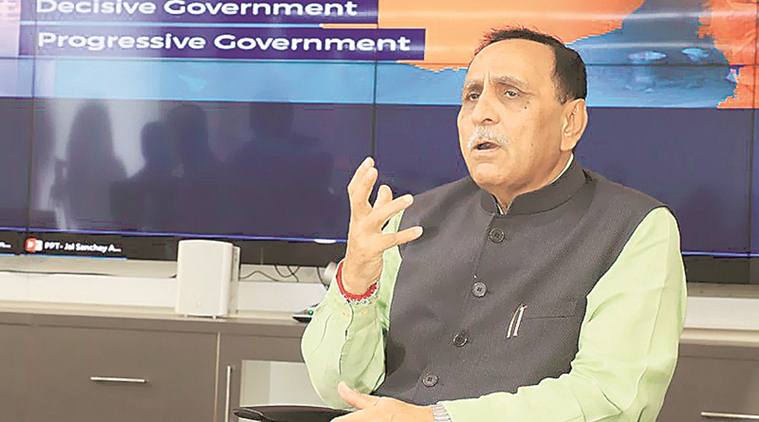 Gujarat CM Vijay Rupani
Gujarat CM Vijay Rupani
Unable to fill the “talent gap” between local and migrant labourers in Gujarat’s expanding industrial sector, the state BJP government is working on a proposal that will define a domicile as one who has resided in the state for two years — down from the current 15 years.
The proposal was floated before the attacks on Hindi-speaking migrants following the arrest of a labourer from Bihar for allegedly raping a 14-month-old girl.
As per the existing clause, which was redefined in 1995 during the tenure of the BJP government under Keshubhai Patel, the mandatory period of residency needed for an immigrant to be called a local resident is 15 years. “Each law has to define its own domicile… We are now proposing two years,” said Vipul Mittra, Additional Chief Secretary (Labour and Employment Department) on being asked about the proposal for altering the domicile clause.
According to him, the new definition of local residents will be a part of a law that the state government is bringing to replace the resolution of 1995. He said the proposal is currently being reviewed by the legal department.
The government’s move to redefine domicile clause coincides with Chief Minister Vijay Rupani’s September 25 statement in which he had announced that his government will ensure that industries in Gujarat employ 85 per cent local residents as per the 1995 resolution. So, while the new law will have provisions for penalising industries for failing to abide by the 85 per cent rule, the state government, at the same time, is looking to address the “talent-crunch” faced by the industries by reducing the number of years for being a domicile to two years.
Congress MLA Alpesh Thakor, whose Gujarat Kshatriya Thakor Sena leader is being accused of leading the attacks on migrants, has claimed that “non-compliance” of this 85 per cent rule was the reason for the outrage against north Indian workers.
According to the 1995 Government Resolution of Labour and Employment Department, “persons staying in Gujarat minimum for 15 years should be considered as local residents”. The 1995 GR also states: “The minimum 85 per cent of the recruitment to the posts in the cadre of employees, workers and artisans and minimum 60 per cent to managerial and supervisory posts in all the undertakings of the state government, as well as all the industries being provided with incentives by the state government situated in the state should be made from among the local residents.”
An official of Labour and Employment Department said as per the 1995 resolution, industries seeking subsidy in taxes, electricity, water, land, etc were asked to give 85 per cent of jobs to local residents. But many industries, especially those into manufacturing, were not getting necessary manpower and preferred to employ migrants due to a host of reasons.
“Firstly, a local Gujarati will never seek employment in industries where hard labour is required. Gujaratis largely do not prefer companies producing chemicals, pesticides or heavy metals. Secondly, industries complain of high absenteeism among local staff. Thirdly, we receive complaints from industrial units about workers from local communities engaging in goondaism,” the official added.